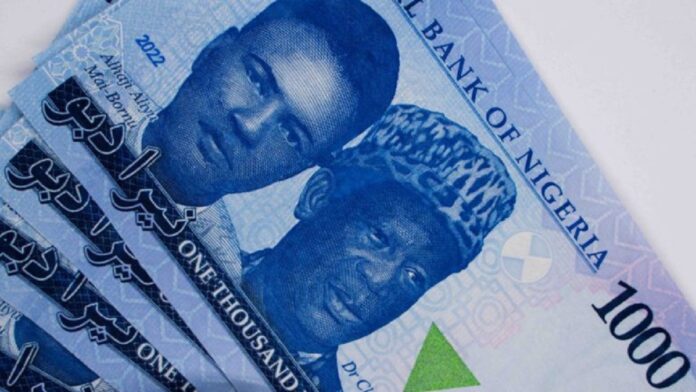The value of the Naira experienced a mixed performance on Monday, March 3, 2025, as it depreciated in the parallel market but appreciated in the official Nigerian Foreign Exchange Market (NFEM).
According to market reports, the Naira was exchanged at N1,510 per dollar in the parallel market, down from N1,505 per dollar last weekend. This slight depreciation in the unofficial market has sparked concerns about the continued volatility of the Nigerian currency. However, in a contrasting development, the Central Bank of Nigeria’s (CBN) published data indicated that the Naira appreciated slightly in the official market. The indicative exchange rate for the Naira stood at N1,499 per dollar, up from N1,500 per dollar recorded on the preceding Friday, showing a N1 appreciation.
This movement in the exchange rates has resulted in a noticeable widening of the gap between the parallel market rate and the official rate. The margin between the two rates increased to N11 per dollar, compared to just N5 per dollar last weekend. This growing disparity between the two exchange rates highlights the continued fluctuations in Nigeria’s foreign exchange market, which has become a subject of increasing concern for Nigerians, businesses, and policymakers.
The depreciation of the Naira in the parallel market, which is often referred to as the “black market,” reflects ongoing pressures on Nigeria’s economy. The parallel market rate is influenced by a range of factors, including supply and demand dynamics, scarcity of dollars, and external economic factors such as the global price of oil, which is a major source of Nigeria’s foreign exchange earnings.
Despite efforts by the Central Bank to stabilise the currency, the parallel market often operates in a manner that is less regulated and more volatile than the official market. The slight depreciation from N1,505 per dollar to N1,510 per dollar suggests that demand for foreign exchange, especially US dollars, remains high, while the supply of dollars continues to be constrained.
In recent months, Nigeria has faced an increasing demand for foreign exchange due to a combination of factors, including rising import bills, foreign debt obligations, and capital flight. Many Nigerians, especially those in business, often rely on the parallel market for foreign currency transactions because of its flexibility and quicker availability compared to the official market.
In contrast, the Nigerian Foreign Exchange Market (NFEM), overseen by the Central Bank of Nigeria (CBN), saw a modest improvement. The official exchange rate, which is more closely controlled by the CBN, appreciated slightly from N1,500 per dollar to N1,499 per dollar.
While this change is relatively small, it provides some optimism about the stability of the official exchange rate. The CBN has been taking steps to manage the exchange rate through interventions, ensuring that the Naira remains stable against other major currencies, especially the US dollar. The Central Bank regularly intervenes in the market to ensure that there is enough supply of foreign exchange for legitimate transactions, such as paying for imports and servicing external debt.

